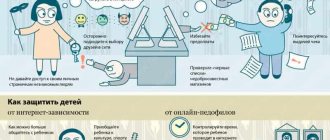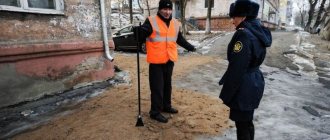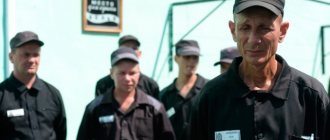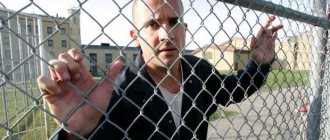ST 275 of the Criminal Code of the Russian Federation.
High treason, that is, espionage committed by a citizen of the Russian Federation, the issuance to a foreign state, international or foreign organization or their representatives of information constituting a state secret, entrusted to a person or becoming known to him through his service, work, study or in other cases provided for by the legislation of the Russian Federation, or providing financial, logistical, consulting or other assistance to a foreign state, international or foreign organization or their representatives in activities directed against the security of the Russian Federation - is punishable by imprisonment for a term of twelve to twenty years with a fine of up to five hundred thousand rubles or in the amount of wages or other income of the convicted person for a period of up to three years or without it and with restriction of freedom for a period of up to two years. Note. A person who has committed crimes provided for in this article, as well as articles 276 and 278 of this Code, is exempt from criminal liability if he, by voluntary and timely notification to the authorities or otherwise, contributed to the prevention of further damage to the interests of the Russian Federation and if his actions do not contain other elements crimes.
Purpose and composition of treason
Article 275 of the Criminal Code of the Russian Federation “Treason” is the successor to Article 64 of the Criminal Code of the RSFSR as amended in 1960 (“Treason to the Motherland”), which in turn goes back to the earlier Article 58-1a of the Criminal Code of the RSFSR, dedicated to counter-revolutionary crimes in the form of treason to the Motherland.
For high treason in Russia, you can get from 12 to 20 years in prison, as well as aggravated in the form of fines (up to 500 thousand rubles) and subsequent restriction of freedom (deprivation of certain civil rights) for up to two years.
In the current version of the Criminal Code, high treason is interpreted in three forms: - espionage, - giving out state secrets to a foreign state, - providing assistance to a foreign state in activities directed against the security of the Russian Federation.
Let's consider all forms of treasonous behavior separately.
Presidential pardon
In the summer of 2021, Vladimir Putin announced the pardon of two Russian women convicted of treason. Marina Dzhandzhgava and Annik Kesyan told their military friends in Georgia about the movement of Russian troops. This was in 2008 during the beginning of the conflict in South Ossetia. The people to whom the Russians conveyed the information were presumably employees of the Georgian special services.
Oksana Sevastidi was convicted under the same article and then pardoned by the President. She told her Georgian friend in an SMS about the train with tanks in Sochi. It turned out that the friend was a scout.
Vladimir Putin said at a press conference that he was not aware of all the details of the case, and Sevastidi only saw what others saw. However, society considered the president’s kindness and gentleness inappropriate. And the decision to pardon was signed in vain: everyone saw it, but only three reported the information to the Georgian military. During the attack by the Georgian army on Russian peacekeepers, more than 70 Russian soldiers were killed and over three hundred were injured.
Espionage
The easiest way is with espionage, as a clearly defined deliberate act. Espionage is the deliberate collection, theft or storage of information containing state secrets. And not for the sake of collecting, but for the stated purpose of transfer to representatives of a foreign state, foreign or international organization.
Espionage also refers to the collection of other (unclassified) information, but only if it is carried out on the instructions of foreign intelligence for use against the security of the Russian Federation.
Why then does the Criminal Code have a separate article 276 “Espionage”? It applies only to foreign citizens or stateless persons caught in this ancient form of socially disapproved activity. But espionage committed by a citizen of the Russian Federation is precisely interpreted under the article on treason, which also goes back to the practice of distinguishing between these elements of crime in the Criminal Code of the RSFSR.
Unattended
The secret nature of examinations in this category of cases deprives the defense of the opportunity “not just to influence the examination, but even to challenge its conclusions,” Koblev added. Not only the defense, but also prosecutorial oversight is limited in its capabilities, he believes: “Until there is more or less transparent oversight of the investigation in such cases, the quality of the investigation will be low. In fact, these cases are now being investigated uncontrollably.”
Formally, there is no difference between prosecutorial supervision over criminal cases of the special services and other cases; now all prosecutorial supervision is in decline, says Alexey Fedyarov, head of the legal department of Sitting Rus', formerly head of the investigative department of the Chuvashia prosecutor’s office. Rather, we can talk about “special control by the FSB over how the prosecutor will behave in the process,” he said.
Society
The media learned about the wiretapping and reading of Safronov's mail by FSB officers
“I would be very happy to see a prosecutor who would refuse to sign an indictment in a criminal case of treason or espionage, which was investigated by the Russian FSB. I think that such prosecutors do not exist in nature. The role of the prosecutor will be reduced to the mechanical signing of the indictment,” Fedyarov noted.
Disclosure of state secrets
Treason in the form of giving away state secrets also does not contain anything unclear. This part of the article implies the transfer by a citizen of the Russian Federation to foreign intelligence of information that has the appropriate classification of secrecy. The transfer must be done intentionally.
The difference from espionage is that the process of collecting or stealing the required information is excluded, since the classified information according to the terms of the task is already in the hands of the accused.
In the comments to Article 275 they usually add that this happens in cases where the accused has secrets for official reasons. For example, he is a military serviceman, an employee of the special services, or an employee of a defense enterprise who has access to materials containing state secrets. That is, the secrets became known to the accused “legally”, on the basis of having access to them from the state.
Sometimes another channel for obtaining secrets is indicated - “another way.” This formulation implies the transfer of secret information obtained without state sanction, but without signs of espionage (deliberate collection on assignment).
Soviet poster from 1954, artist - K. Ivanov.
In 2012, the Criminal Code of the Russian Federation specified liability in this area, adding Article 283.1 “Illegal acquisition of information constituting state secrets” (up to eight years in prison). This article implies the illegal (without obtaining proper clearance and official needs) receipt and storage of secret information “for oneself.” The article specifically states that situations provided for in Articles 275 and 276 (transfer of collected information externally) do not fall under it.
The very intentional transfer of information obtained in such an “accidental” way already includes the third part of the corpus delicti of high treason - providing assistance to a foreign state. As far as can be judged from the fragmentary information leaked to the press, this is precisely the case of Svetlana Davydova, who is accused under Article 275 for intentionally transmitting secret information obtained by chance (overheard in a minibus) to the Ukrainian embassy.
Who determines state secrets
Cases in this category are under investigation by the FSB, are classified as “top secret” and are heard behind closed doors, recalls lawyer Vladimir Zherebenkov: “Much depends on how society reacts to a criminal case, but no one will allow the public into such cases. A very big difficulty for the defense is that the lawyer cannot tell the press any details of the accusation. Perhaps there was incitement, a provocation of the crime on the part of the operatives, or they are simply making mistakes and working for indicators - but it is very difficult to report this, because the case is being investigated secretly.”
Society
Journalist Ivan Safronov was suspected of treason. Main
The law implies that any information, the release of which could harm Russia's defense capability, is a state secret. But there are no criteria for this damage, Zherebenkov emphasized. As a rule, as part of the investigation, an examination is carried out to determine whether the information issued was classified as secret and whether its disclosure caused damage to the security of Russia. Such examinations are almost always carried out by specialists from the FSB itself, who are in a dependent position in relation to the investigation.
“The list of information that can be classified as a state secret is vague; In essence, there is only one criterion: whether their disclosure could cause damage to Russia’s security. FSB experts will definitely say: yes, it can. In the case of the American Paul Whelan, we asked for an independent examination from the Ministry of Defense, but they refused. The study was carried out by career FSB officers, they acted in the interests of their intelligence service, you know what the result is,” the lawyer said.
In cases of high treason, “everyone talks about the interests of the state, but no one will look at the rights and interests of a particular individual,” concluded Zherebenkov. He pointed to the symbolic meaning of the fact that cases are heard in courts at the level of a constituent entity of Russia by panels of three judges: “Troikas” have essentially not changed [since the 1930s], they mean that the interests of the state prevail in the process and, as a rule, make decisions indictment."
Providing assistance - and in any other form that suits you
In November 2012, the wording of Article 275 was supplemented with an expanded interpretation of treason: now it also includes the provision of “financial, material, material and technical, consulting or other assistance to a foreign state, international or foreign organization or their representatives in activities directed against the security of the Russian Federation.” Federation".
Previously, this part of the article sounded more sparingly: “providing assistance to a foreign state, foreign organization or their representatives in carrying out hostile activities to the detriment of the external security of the Russian Federation.”
It is interesting here both to expand the list of enemies of the state (for example, to include international organizations in it), and to shift the focus from damage to “external security” (defense capability) to security in general, that is, implying internal security too. It is worth noting the replacement of the very specific “hostile activities to the detriment of external security” with the much more vague “activities against security.”
Previously, “other assistance” was usually understood as conscious, rational actions of a citizen of the Russian Federation facilitating the work of foreign intelligence services. For example, providing shelter to foreign intelligence officers or helping them find safe houses and safe houses, supplying them with resources, technical means and documents. Or, for example, recruiting agents from among local residents on their instructions, as well as assistance in placing agents in jobs that require access to state secrets for official reasons.
Soviet poster from 1952. Artists: A. Intezarov, N. Sokolov.
This category also includes such actions as transferring to foreign intelligence information that is obviously not classified as secret, but is of interest to it (military-technical information, information about scientific developments, data about industry and transport, the work of special services, and so on). Here, however, a purely scholastic subtlety of the distinction with espionage arises. A characteristic feature may be, for example, the proactive nature of the transfer - the fact that the accused himself offered this information to the intelligence representative, regardless of his motives.
In any case, it is precisely such an act, characterized by the least formal certainty, that is potentially subject to an unreasonable broad interpretation, and its qualification under Article 275 causes the greatest criticism from human rights activists. And it was precisely this that was further blurred in meaning by the latest edits in 2012.
Some point out that replacing “hostile activity” with “anti-security activity” may seriously reduce the requirements for proof of the presence of malicious intent on the part of the accused, and of tangible actual harm in his actions. This opinion, in particular, was recently shared with the public by the Presidential Council for Human Rights.
Moreover, in 2012, the bill was introduced into the Duma with a completely fantastic formulation that activities against the security of the state should be understood as actions aimed, “including against its constitutional system, sovereignty, territorial and state integrity.” This “legal nuclear bomb,” which essentially prohibits any public forms of disagreement with the actions of the federal authorities, still did not pass through the legal examination of the State Duma, causing sharp protests among deputies.
Official, engineer, mother of many children
After changes were made to the Criminal Code, the annual number of people convicted of treason, espionage and disclosure of state secrets is growing progressively, according to data from the Supreme Court, which Mediazona drew attention to. In 2021, more than 60 verdicts were handed down based on these offenses, and more than 40 in 2021, while in 2009–2011 there were from ten to 20 per year.
In 2021, 58 people were convicted on charges related to counterintelligence activities, according to data from the Judicial Department. Including one person was convicted of espionage, six of high treason, 45 of disclosing state secrets and six of illegal collection of classified information.
Only a few of these cases receive publicity.
Famous treason cases in recent years
Alexander Derkunsky is an entrepreneur, arrested in June 2021. Founder. According to investigators, he received data from scientific developments intended for the Ministry of Defense, and then, based on them, outside Russia he organized mass production of equipment that was bought by foreign organizations, including the secret services
Valery Golubkin, Anatoly Gubanov are physicists from the Central Aerohydrodynamic Institute (TsAGI), teachers at MIPT. According to sources, the case is related to the transfer of secret information to a European state as part of an international project to develop a hypersonic civil aircraft HEXAFLY-INT (High-SpeedEXperimental FLY Vehicles). MIPT speaks out in defense of its employees.
Ivan Yatskin , a resident of Simferopol, a citizen of Russia and Ukraine, received 11 years in prison in May 2021. According to the FSB, he collected information in Crimea about the personal data of employees of the operational search bureau of the Ministry of Internal Affairs for Crimea and then transferred it to employees of the Security Service of Ukraine for money. Included by Memorial in the list of political prisoners.
Valery Mitko , the 78-year-old president of the St. Petersburg Arctic Public Academy of Sciences, is accused of taking out in his suitcase a document with the characteristics of submarines, including a Russian one, during one of his lecture visits to China.
Alexander Vorobyov is a former assistant to the Presidential Plenipotentiary Envoy in the Urals Nikolai Tsukanov, the highest-ranking civilian official arrested in a treason case in recent years. According to investigators, he gave information about Security Council meetings to a Polish intelligence agent. In April 2021, he received 12.5 years in prison.
Alexey Vorobyov is an associate professor at the Moscow Aviation Institute, taught the theory and design of rocket engines. In April he received 20 years in prison; in addition to treason, he was charged with preparing for the illegal transfer of raw materials, equipment or technologies that could be used in the creation of weapons, and attempting to smuggle such materials. The court mentioned that Vorobyov has “extensive, stable connections outside the territory of the Russian Federation, including in the People’s Republic of China.”
Viktor Kudryavtsev, Vladimir Lapygin, Sergey Meshcheryakov and Roman Kovalev are researchers at the Central Scientific Research Institute of Mechanical Engineering (TsNIIMash), the main scientific enterprise of Roscosmos. They are accused of treason on various grounds; the Kudryavtsev case, for example, involves research in the field of aerodynamics carried out jointly with European institutions. Kudryavtsev died of cancer in April 2021. He was at large, the investigation against him was suspended.
Vladimir Neelov , a military expert, author of publications about the Wagner PMC, received seven years in prison for transferring data on the training and retraining of FSB operational officers to a German consulting firm for money.
Antonina Zimina and Konstantin Antonets are experts at the Public Diplomacy Support Fund named after. A.M. Gorchakova and her husband are accused of disclosing to the Latvian intelligence services the identity of an operative of the Kaliningrad FSB department.
Sergey Mikhailov, Ruslan Stoyanov, Dmitry Dokuchaev and Georgy Fomchenkov , employees of the FSB and Kaspersky Lab, received up to 22 years for treason. The plot of the case is not officially known, Kommersant associated it with the disclosure by the US FBI of data on surveillance of Chronopay founder Pavel Vrublevsky, and The Bell with the transfer to the United States of data on attacks by Russian hackers on Democratic servers before the presidential election.
In the previous few years, former GRU engineer Gennady Kravtsov, employee of the Sarov Nuclear Center Vladimir Golubev, air traffic controller Pyotr Parpulov, mother of many children Svetlana Davydova, and saleswoman Oksana Sevastidi were prosecuted for treason.
Broad spectrum antibiotic
One can, of course, again sneer at the legal technique of the federal legislator, just as not for the first time point to examples of the low level of examination of bills that are sometimes read with incredible ease in the State Duma. (By the way, consideration of the 2012 amendments in the second and third readings immediately took parliament no more than 10 minutes.) But the problem is much more complicated.
The state is faced with rapid changes in the social fabric, especially in the field of simplified cross-border interactions (including via the Internet), and instinctively sees danger in a surge of uncontrolled (not sanctioned by the bureaucracy) civic activity, as well as in spontaneous protest movements coordinating their actions on the principles network self-organization. The authorities, in defense, are forced to rebuild the outdated legal body in accordance with the new threat.
Is the state adequate in this restructuring? To answer this question, we must first understand whether the threat itself is adequately understood. And to understand the threat, you first need to name it.
Soviet poster of the 50s
And here an effect arises that the Strugatsky brothers called “linguistic suffocation.” The state has no words to describe or concretize the threat it senses; there are no ways to distinguish “correct” social activity from “wrong” (recognizing the entire conventionality of these categories).
Hence the vagueness of the wording of Article 275 and the chimerical constructions of the recently adopted military doctrine, which introduces protests of its own population and a critical revision of the “glorious past” into the category of military threats to the state. This is not due to the bloodthirstiness or cowardice of senior dignitaries, as for some reason many believe, but solely due to the lack of a suitable language among the bureaucracy. The phenomenon exists, but there is no word for it. Therefore, the broadest possible interpretation is accepted and then mentally attributed to “and then we’ll figure it out in each specific case.” As Napoleon Bonaparte said to the framers of the French constitution, “write briefly and clearly.”
Like any machine without foolproof protection, such legislation is dangerous in the wrong hands. Sticking your fingers into a working lathe is fraught, but some elements of the new law of the land are becoming just such machines. What we have before us, in essence, is a “broad-spectrum antibiotic,” which technically can be used both against real threats to social stability and against any suspicious forms of self-organization of the population outside state structures and state-controlled NGOs.
However, the systematic abuse of antibiotics leads to the most tragic consequences for the body - from dysbiosis to targeted mutations of harmful strains resistant to this medicine.
Subjective signs
To properly qualify any crime, it is necessary to establish not only its circumstances, but also the person who carried out the attack. An important point is to determine the characteristics of this person that make it possible to bring the perpetrator to justice, as well as his personal motives, goals and guilt.
The subject of a crime can only be a person who meets the four conditions established by the legislator. These will include the following:
- Only the individual is responsible;
- must be at least sixteen years old;
- Russian citizenship only;
- complete sanity.
If a person cannot be characterized by these characteristics in the aggregate, then the initiation of a case is also not allowed.
When it comes to the disclosure of state secrets, the culprit can only be the official carrier of such information (managers of commercial, industrial, manufacturing companies, government officials, etc.)
It is the subject who establishes the distinction between treason and espionage, since in the first case the criminal is only a citizen of the country, while in the second situation the work of foreigners is envisaged who encroached on state secrets and the foundations of the constitutional system of Russia.
In addition to characterizing the subject of the crime himself, it is necessary to conduct a criminological study of his attitude to what he commits, that is, to assess the mental and psychological state and establish guilt. To do this, it is necessary to consider several options for its manifestation:
- Intent. This form is characterized by complete control over one’s own actions on the part of the person, awareness of the social danger and consequences of the act, as well as the desire for their occurrence.
- Carelessness. There are two possible manifestations here: negligence, which assumes that the person did not want the negative consequences to occur and did not foresee them at all, which he had to do due to the circumstances; frivolity, when a citizen considered that the consequences of the crime would not occur at all, although there were no sufficient grounds for this, but was able to predict them.
In the case of high treason, only the first version of guilt is applicable, namely direct intent.
The main thing is to repent in a timely manner
Article 275, like all articles of Chapter 29 of the Criminal Code (“Crimes against the foundations of the constitutional order and security of the state”), when examined, looks fearful. However, there is a special addition to it that allows you to avoid these unpleasant “from 12 to 20 years.”
The note reads: “A person who has committed crimes under this article (...) is exempt from criminal liability if he, by voluntary and timely notification to the authorities or otherwise, contributed to the prevention of further damage to the interests of the Russian Federation and if his actions do not contain other elements of the crime.” .
The same rule applies to articles 276 (“Espionage”) and 278 (“Forcible seizure of power or forcible retention of power”).
In other words, if “the Lord awakened the conscience of a fierce robber” and he, having discovered signs of treason, immediately repented to the competent authorities, then you can forget about “from 12 to 20 years”. Naturally, if no other crimes were committed in the process of treason.
A minefield for journalists
The Safronov case showed that every journalist who works on military, industrial, scientific, technical, economic, security and criminal topics may be at risk. Inaccurate wording and definitions from the Law “On State Secrets” and the Criminal Code “create great instability for the work of a journalist,” Galina Arapova, head of the Center for the Protection of Media Rights, told RBC. Thus, the list of classified information from the Law “On State Secrets” is “written in broad strokes”; it does not contain a detailed description of potentially secret information, “so that an ordinary person and a journalist clearly understands what should not be done.”
Sometimes the issue of belonging to a state secret is decided after the information has entered the public field, and what exactly this or that agency considers to be a state secret is largely a matter of its discretion and understanding of state interests, the lawyer states.
“At what point they will want to pull out this card in relation to a particular journalist - if he does not write, for example, theatrical announcements - no one knows,” says Arapova. Thus, the military-industrial complex and arms supplies abroad are actively discussed in the state press, and publications similar to some articles by Ivan Safronov could appear on the Zvezda TV channel, she says: “Where the patriotic interest of the state ends in discussing this topic and information begins, which the state does not want to discuss? This boundary is not at all clear.”
The Law “On the Mass Media” contains a ban on censorship and directly obliges a journalist to publish any socially significant information, Murakhovsky recalled: a contradiction between the requirements of different laws arises where socially significant information turns out to be sensitive to the state.
Responsibility
This article of the criminal law, in addition to a detailed description of such an act as high treason, also reflects sanctions, namely the punishment that such an offense will entail. First of all, in order to establish measures of influence on the violator of the law, it is necessary to determine the severity of the crime in question.
Treason to the state is recognized as an assault of a particularly grave nature, since the maximum sanction is imprisonment for a term of up to twenty years.
Public relations related to ensuring the country's security are protected by numerous authorities (Ministry of Internal Affairs, FSB, etc.), therefore, due to the specific nature of attacks on these relations, there are no qualifying features.
For specifically defined actions against the interests of Russia, separate rules are provided. Opinions on this matter are divided, but each article briefly reflects the nature of the crimes, which makes it possible to distinguish between the severity of the actions committed.
Speaking about specific types of punishments, it should be noted that this article provides for only three of them:
- imprisonment, the period of which varies from twelve to twenty years;
- a fine, the amount of which should not exceed either five hundred thousand rubles or salary for a period of up to three years;
- restriction of freedom for up to two years.
The peculiarity of the application of such punishments is that it does not provide for the receipt of one of these sanctions. The court is appointed immediately all options. The only thing that is permissible is to exclude a fine or restriction of freedom.
The legal system Consultant Plus has its own development and updates information several times a year. For example, news about the regulation of the issue under consideration includes a new version of the law, which contains a note about the exemption from criminal liability of those persons who reported possible damage to the interests of Russia.
In order for the annotation of the article to be implemented, the subject of the crime must meet two conditions. Firstly, timeliness. The very fact of committing actions gives rise to grounds for bringing a person to justice, however, refusal of illegal actions can help avoid punishment, but only if the security and constitutional foundations of the country have not caused significant damage.
Secondly, voluntariness. A person must express his desire and tell about the criminal attack. If circumstances are established that are independent of the guilty subject and contribute to the renunciation of a socially dangerous act, then this will not be considered a voluntary act of repentance, and therefore will not allow the rule of exemption from liability to be applied.
Thus, this article of the criminal law is one of several norms providing for liability for violations of the security and integrity of the state.
It is necessary to remember about the exclusive subject of this crime, since treason is typical only for Russian citizens. At the same time, the legislator establishes severe penalties without offering the court an alternative, which confirms the gravity and danger of the act in question.
Item
It is any information transmitted to foreign representatives, which they can use to cause damage to Russia. To ensure security, the state classifies certain information as state secrets. In this regard, Part 4 of Article 29 of the Constitution provides that the list of such data is established by federal legislation. The state may determine ways and means of protecting secrets. The measures also include criminal liability for disclosure and provision to another country. By virtue of the constitutional norm, punishment for such actions occurs only if the list of data constituting a state secret is enshrined in law. The relevant normative act must be published for public review in an official source.
Arbitrage practice
Almost every law enforcement officer has information that is not subject to disclosure. If a citizen, holding a significant position in the police or other government agency, transfers information received as a result of his professional activities to foreign organizations, he faces very severe criminal penalties.
As in other similar crimes, the motive can be purely selfish considerations. The result of a trial for such criminal acts is a long prison sentence for a state traitor.
Mitigating circumstances undoubtedly play a role in sentencing. After committing actions that caused significant damage to the economy and foreign policy of Russia, the initiator of the illegal activity, being a citizen of the Russian Federation, can hardly hope for a significant reduction in the penalty. A person convicted of high treason is imprisoned for a period of at least twelve years.
Interpretation of the concept
High treason should be distinguished from a violation of allied obligations (for example, during war), since in the case of treason the perpetrator is a subject of the law of the relevant state, but in the case of a violation of allied obligations, he is not.
In England during the Tudor times, high treason (English: high treason) often included any violation of the king’s special decrees (for example, condemnation of the marriages of Henry VIII); in one case, sodomy was interpreted as treason. In modern Britain, the concept of high treason is interpreted extremely narrowly - as an encroachment on the person of the monarch. Thus, one of the last to be convicted under The Treason Act of 1842
, was 16-year-old Marcus Sargent (English) Russian, who fired several blank shots towards Elizabeth II during the parade on June 13, 1981.
Treason in the United States is the only crime that is defined by the Constitution of the country (to avoid abuse), in Article 3, and is interpreted as military actions against the Federal government: “Treason against the United States is considered only by waging war against them or joining their enemies and providing them with assistance and assistance. No person can be convicted of treason except on the testimony of two witnesses to the same apparent act, or on his own confession in open court. Congress has the power to fix the punishment for treason, but conviction of treason shall not entail the deprivation of all rights and wealth, or the forfeiture of property, except during the lifetime of the person guilty.” Since World War II, only one person in the United States has been charged with treason.[1]
Different states have different views on the question of whether actions against the constitutional order or the ruling regime should be considered treason if they do not consist of direct participation in hostilities. Thus, the case of the Nazi propagandist W. Joyce, who was sentenced to hanging for treason without being a British subject, caused some controversy.
Many who had stained themselves by collaborating with the enemy, not excluding heads of state and government, were convicted in 1945-1946 of high treason in various European countries. Governments led by convicted traitors (like the Vichy Regime in France) were thereby considered illegal and illegitimate from the very beginning.
In the USSR
In the USSR, treason was interpreted first classally, as “betrayal of the cause of the workers’ and peasants’ revolution,” then patriotically, as “treason to the Motherland” from 1934; the formulation “treason to the Motherland” was retained in the Criminal Code of the Union Republics until the collapse of the USSR. The expanded concept of high treason was used during Stalin's repressions. Many security officials were themselves accused of treason and executed. It is noteworthy that extremely often the modified syntagm “traitor to the Motherland” was applied to people
” (which was almost never encountered until the 1930s) - in documents, literature[2] and colloquial speech. In this form, using the direct meanings of words, she can be tragicomically interpreted as “the one who changes the Motherland.”
Disagreement among lawyers
Experts are debating who can be charged with treason: the one who possessed the information due to his official duties, or the one who obtained the information through theft. Some theorists and practitioners believe that the subject may be a person who has been entrusted with documents that constitute state secrets. However, such an understanding is absent in the criminal article under consideration. Therefore, charges of treason can be brought against anyone who divulges secret information.
Commentary on Article 275 of the Criminal Code of the Russian Federation
In turn, vital interests are a set of needs, the satisfaction of which reliably ensures the existence and opportunities for the progressive development of the individual, society and state. The main objects of security include: the individual, his rights and freedoms, society, his material and spiritual values, the state, his constitutional system, sovereignty, territorial integrity. Sovereignty is the independence, supremacy and complete independence of the state in resolving its external and internal issues.







